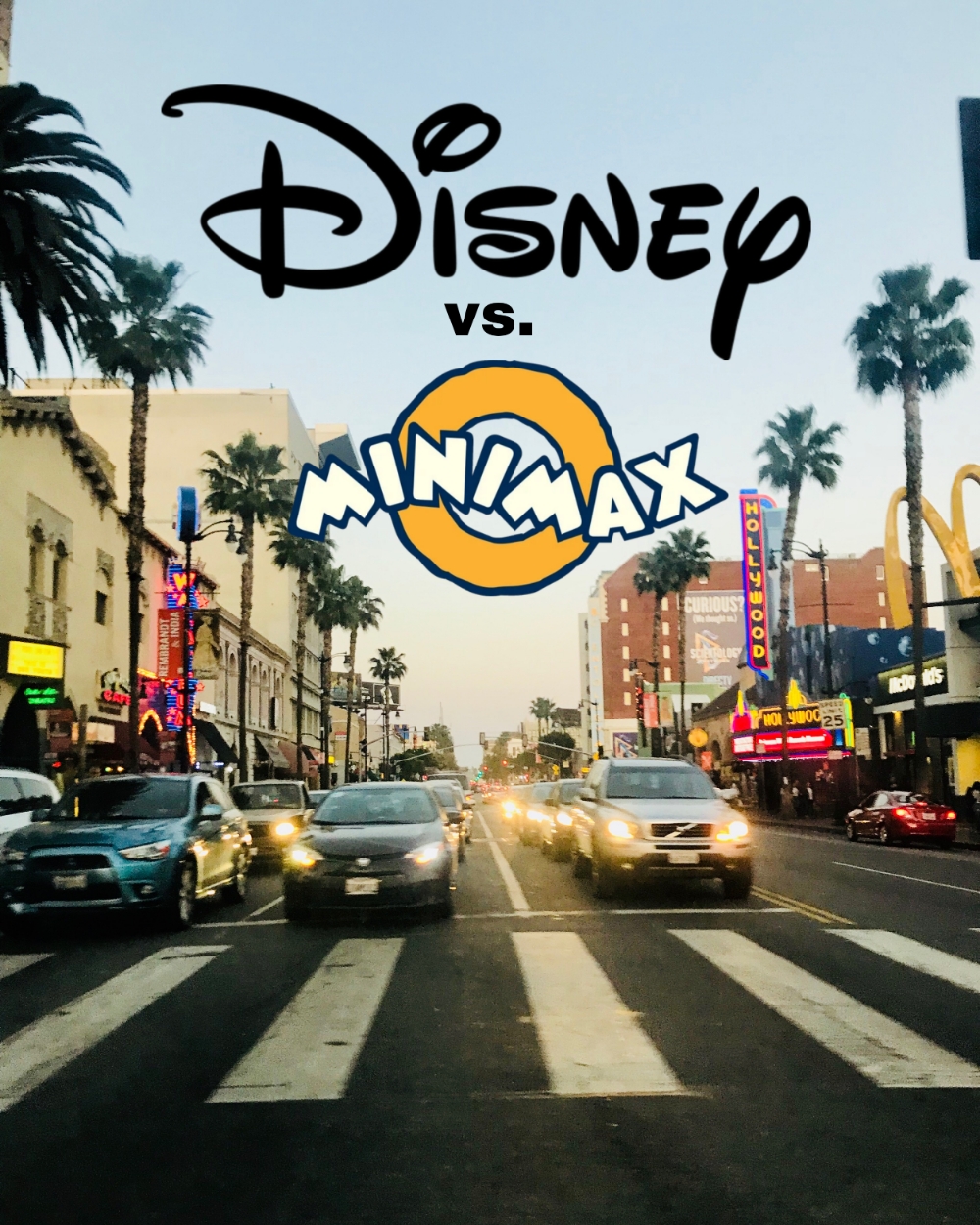Copyright Lawsuit | Media & Entertainment | Global Trend
The Basics: Who’s Suing Who & Why
Walt Disney, Universal (a division of Comcast), and Warner Bros. Discovery have jointly filed a lawsuit in the U.S. District Court for the Central District of California against Chinese AI company MiniMax. The dispute centers on MiniMax’s image‑and‑video generation service known as Hailuo AI. The studios allege that MiniMax “willfully and brazenly” uses their copyrighted characters — without permission — both for generating images/videos and as part of marketing the service. (Reuters)
Key Allegations
- Unauthorized use of iconic characters: The complaint states that Hailuo AI allows users, via simple text prompts, to generate downloadable content featuring characters like Darth Vader (Star Wars), the Minions (Despicable Me), Wonder Woman, the Joker, and others — all owned by Disney, Universal, and Warner Bros. Discovery. (Reuters)
- Marketing with infringing content: The lawsuit alleges that MiniMax used those characters in its own marketing materials, advertising Hailuo AI as a “Hollywood studio in your pocket” and including infringing images in promotional content, thus falsely implying endorsement or association. (Reuters)
- Refusal to adopt protective measures: The studios contend that despite cease‑and‑desist or similar demands, MiniMax failed to implement known safeguards that could limit or filter out infringing content, such as those used by other AI companies. (Investing.com)
What the Plaintiffs Are Seeking
- Injunctive relief: A court order to halt use of their copyrighted material in Hailuo AI; potentially a full stop of the service unless proper copyright protections are in place. (Reuters)
- Monetary damages & profits: They are seeking to recover profits made by MiniMax from the alleged infringement, plus statutory damages and any other relief allowed under U.S. copyright law. (TheWrap)
- Potential reputational remedy: Implicitly, the suit seeks to send a message: that even foreign AI‑based services are subject to U.S. copyright law when they operate in or target U.S. markets. (Financial Times)
Legal Issues & Challenges Ahead
Here are some of the legal doctrines, evidentiary issues, and strategic considerations likely to shape this lawsuit:
| Legal Issue | Key Questions / Hurdles |
|---|---|
| Copyright Ownership & Character Rights | The studios need to show ownership of the relevant copyrighted characters, including design and expressive attributes, and that the generated images/videos infringe those protected works. Character copyright is often complicated (e.g. whether the AI output is too derivative, or whether it crosses into non‑copyrightable elements such as ideas). |
| Derivative Works & Transformative Use | MiniMax may argue that the AI output is transformative or uses the characters in ways that qualify for fair use or some other exception. The studios will seek to show that the uses are not sufficiently transformative and that they compete with or usurp the commercial value of the original works. |
| Training Data & Liability | Courts are increasingly grappling with whether training an AI model on copyrighted images without a license is itself an infringement or whether liability arises only at the point of generation. If MiniMax’s model was “trained” using copyrighted characters (e.g. scraped imagery), that may give rise to claims, but proving the details of training data is often difficult. |
| Jurisdiction & U.S. Law | Though MiniMax is based in China, the lawsuit is filed in a U.S. court. The studios must establish that the U.S. court has personal jurisdiction over MiniMax, and that MiniMax is subject to U.S. copyright law (e.g. because it markets to U.S. users, accepts U.S. customers, etc.). |
| Remedies & Damages Calculation | The studios will need to quantify their damage (lost licensing, dilution of value, etc.), plus profits made by MiniMax, and possibly statutory damages (which for willful infringement can be high). They will also need to show that MiniMax actually made profits traceable to the infringing content. |
| Fair Use / First Amendment Defenses | MiniMax might assert that certain uses are fair (e.g. parody, criticism, or “transformative” art). The plaintiffs will try to show that none of those apply to the types of images/videos being generated, especially given the marketing and commercial nature. |
Broader Context
This lawsuit is part of a rapidly proliferating wave of litigation by media and creative rights holders against AI companies. Some relevant context:
- Earlier in 2025, Disney and Universal filed suit against Midjourney for similar claims of unauthorized usage of copyrighted characters and works. (AP News)
- There is a growing tension in U.S. law between innovation in generative AI and protecting the intellectual property and economic value of existing creative content. The courts are still working out how “fair use,” transformative use, licensing, and derivative works apply in the AI setting.
- MiniMax is reportedly preparing for a public listing (IPO in Hong Kong) and has rapidly expanded in user base (over 150 million users globally), which raises the stakes for both sides. (Financial Times)
Potential Outcomes & Implications
Some possible legal and industry impacts depending on how the case proceeds:
- Injunctions and content moderation requirements: The court may order MiniMax to (a) cease generating content that uses plaintiffs’ characters without authorization; (b) implement filters or moderation tools; (c) remove infringing marketing materials.
- Damages & licensing obligations: If the plaintiffs succeed, there may be significant damages, licensing fees, or required compensation that could affect how AI companies price and structure their models.
- Precedent for international AI copyright enforcement: A favorable ruling for the studios could strengthen their ability to enforce IP rights against foreign entities whose services operate globally or target U.S. users.
- Innovation & chilling effects: On the other hand, AI firms and open‑source proponents may argue for caution, as overly broad rulings could stifle innovation or impose heavy compliance burdens.
- Negotiated settlements & licensing frameworks: It’s possible the parties will settle, perhaps with MiniMax licensing certain characters, changing its business model, or agreeing to more robust safeguards.
What to Watch Next
- The court’s initial rulings on motions to dismiss, especially whether the complaint adequately alleges jurisdiction, ownership, and infringement.
- Discovery: whether the studios will gain access to MiniMax’s training data, internal documents, marketing materials.
- Arguments and evidence about how “downloadable” and “high‑quality” the infringing content is, and how closely it replicates protected works.
- How MiniMax responds, both in court and publicly (e.g. statements, possible counterarguments about fair use).
- Whether this case influences regulatory or legislative efforts in the U.S., EU, or elsewhere to limit AI misuse of copyrighted works or to establish clearer rules for AI‑generated content.
Conclusion: West versus East Media Showdown
The lawsuit by Disney, Universal, and Warner Bros. Discovery against MiniMax is one of the most high‑profile confrontations yet between the traditional entertainment industry and emerging AI firms. It underscores how copyright law is being tested by new generative AI technologies, particularly around boundary issues: what constitutes unauthorized use, how much transformation is required for “fair use,” and how IP rights are protected in a global, digital, AI‑enabled world.
As the case progresses, it could serve as a leading precedent for how courts worldwide assess similar claims — with implications both for those creating AI tools and for creators seeking to protect their works.






